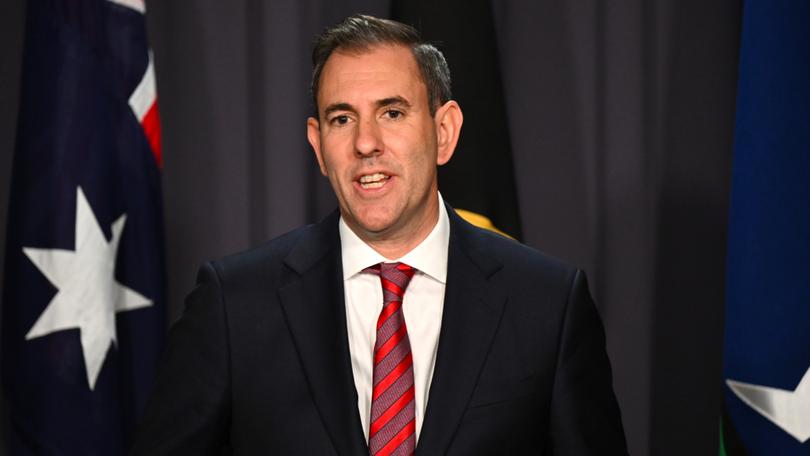NICK BRUINING: Get Jim Chalmers to foot your funeral bill as prepaid arrangements gain popularity

It’s the final expense that someone has to pay.
Paying the funeral account usually falls on the executor of the deceased’s estate, but who would have thought that for some, there’s a way to get Treasurer Jim Chalmers to foot the bill?
At the same time, with the ubiquitous funeral insurance policies, you could end up paying four or five times the actual cost of your funeral.
Sign up to The Nightly's newsletters.
Get the first look at the digital newspaper, curated daily stories and breaking headlines delivered to your inbox.
By continuing you agree to our Terms and Privacy Policy.While a low cost send-off can be around the $5000 mark, a more traditional funeral with flowers, a celebrant and maybe some nibbles will cost around $12,000.
If you plan on donating your leftovers to science, think again. The market for “used you” isn’t as strong as you think.
In many cases, medical schools and others will politely decline the offer, unless you meet strict criteria which are set out on the University of Western Australia’s body donation program website.
In most cases, the executor simply uses some of the deceased’s money to pay the bill.
Banks will usually release the money for funeral costs when presented with an account, even before probate has been granted.
Gaining popularity is the prepaid funeral arrangement. Not only because of the peace-of-mind they offer, but the not inconsiderable Centrelink benefits for a part-pensioner that is asset tested.
Prepaid funerals have become more popular over recent years as the cost of funerals has increased and seniors don’t want loved ones to bear the financial burden.
A prepaid funeral can result in an instant increase in your fortnightly age pension.
The strategy only benefits seniors receiving a part-pension because of the application of means-testing.
A single pensioner getting $1116.30 a fortnight, or a couple receiving a combined $1682.80, gain no advantage because they are already receiving the maximum rate of pension payable.
Centrelink will deduct the amount used for a prepaid funeral from an individual’s financial assets.
The means test applicable to you will determine the cash benefit you’ll receive.
The least effective outcome is for someone whose pension is reduced because of the income test.
For example, a pensioner who prepays $10,000 as a lump sum towards their funeral would see the pension increase by a maximum of $4.33 a fortnight, or $112.50 a year.
By far the more impressive effect is for those on an asset-tested pension.
In this case, the $10,000 lump-sum reduction under the asset test translates to an immediate lift of $30 a fortnight, or $780 over a year. In effect, this is like a 7.8 per cent return on “investment”, courtesy of Centrelink.
It means that if you last for about 13 years, the extra pension you receive will effectively pay back the $10,000 you spent on the prepaid funeral.
If you can’t stump up the full amount immediately, you can pay off your funeral in instalments.
In this case, if you die before it is fully paid off, the balance of the funeral cost would need to be met with money from your estate.
One important point to note is that a prepaid funeral bears no relation to funeral insurance, which fills every advertising slot on afternoon TV.
While insurance providers try to sweeten the deal with gimmicks like cash-backs and gift cards, the fact remains that if you stop paying the premium, the policy stops and no money will be paid to the estate.
A 75-year-old male buying $10,000 of funeral insurance through one provider, for example, will be paying about $98 a fortnight.
In essence, the premiums paid would have covered the $10,000 insurance payout within four years and if you’ve made it that far, your average life expectancy is already up to 86.
It is not uncommon for someone to pay three or four times more than the cost of a funeral.
The Financial Rights Legal Centre estimates that unless you die within five to 10 years of starting the policy, you are likely to hand over more in premiums than any benefit eventually paid after your death.
The legal centre says it is not uncommon for funeral insurance premiums to increase as you get older — even with policies that purportedly have level premiums. And the policies usually only cover death by accident in the first 12 months.
Consumers are often given confusing information, particularly with policies sold over the phone, the legal centre warns.
Nick Bruining is an independent financial adviser and a member of the Certified Independent Financial Advisers Association

